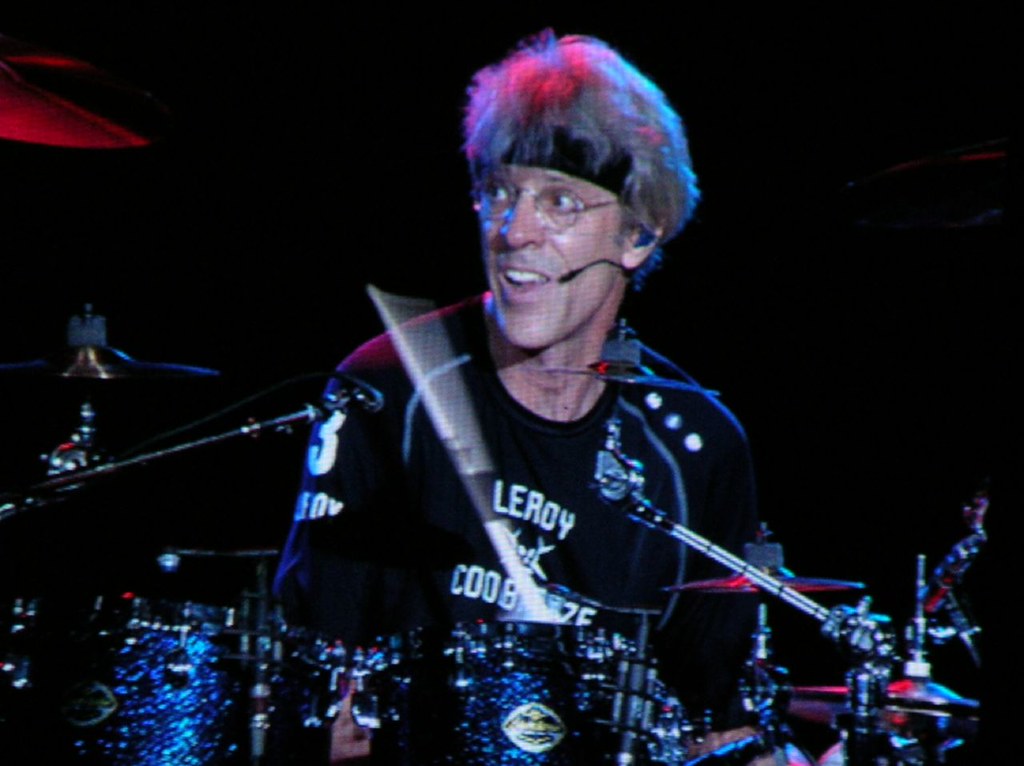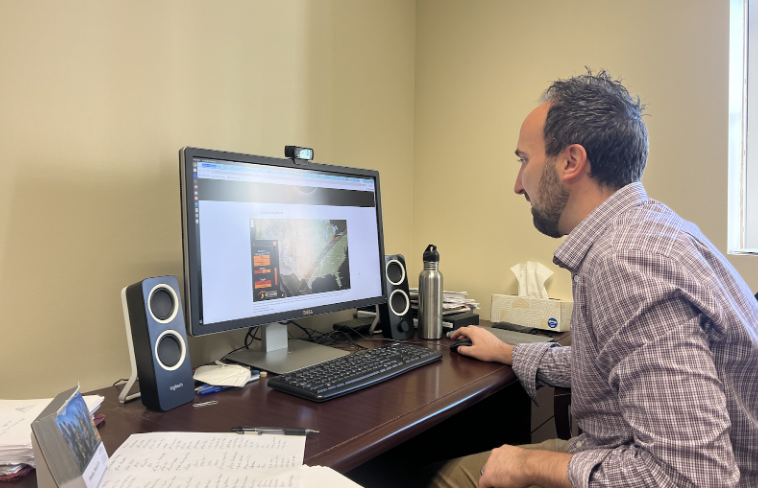The DeGoyler Library hosted the third guest of the Gilbert Lecture Series, Caribbean British author Caryl Philips, Wednesday night. Philips is a prolific fiction and non-fiction writer, as well as a playwright and an editor. He has written for television, cinema and the theater.
Phillips’ newest book, “Dancing in the Dark,” is a novelization of the life of Bert Williams, the American entertainer. During his presentation in the Stanley Marcus Reading Room of the DeGoyler Library, Phillips read four excerpts from his novel to the audience.
The subject of Phillips’ study, Bert Williams, was at one time the highest paid and most popular actor in America. He performed on stages throughout the West, Midwest and North, eventually joining the Ziegfeld Follies in 1910.
Phillips says the Ziegfeld Follies was “probably the most important performance troupe ever on American Stage and the most influential.” With the Follies, Williams took his song, dance, comedy and mime act to the New Amsterdam Stage, which can still be visited in New York City.
Williams performed all of his acts in blackface, the convention for all black performers until around 1914. Because that part of his character was such an essential part of his act, Williams continued to wear blackface until the end of his career.
“In other words,” Phillips said, “[Black performers] had to disfigure themselves, mock themselves” in order to reach a white audience.
To illustrate Williams’ style of entertainment, Phillips showed a black-and-white video of Williams performing his “Poker: De Rulin Passhun” act, for which he was well-known.
When Williams died in 1922 at the age of 47, 15,000 people blocked the streets of Harlem, N. Y. to mourn his passing.
“This July, I lined up in the rain at Riverside Church in Manhattan with 2,000 people, because Luther Vandross had died and I wanted to see his funeral,” Phillips said. Seeing that many people attend Vandross’ funeral put Williams’ popularity into perspective for the author.
Though Williams was an internationally recognized figure, even exchanging letters for many years with the king of England after performing in Buckingham Palace, he is now almost forgotten.
“Why has he been written out of American history so completely?” Phillips asked. His novel explores the question of where art stops and one’s responsibility to one’s race and people begins.
“Novels are about people, about the inner life”, Phillips said, explaining that it was the lack of “confessional material” by Williams that drew him to the story. Williams left behind no letters, diaries or journals.
Phillips read a quote by Williams, in which Williams said, “Nobody in America knows my real name, and if I can prevent it, no one ever will.” To the author, this lack of material meant a “huge space to – imagine.”
After his lecture, Phillips opened the floor to questions. After being asked how he came up with the topics and characters of his many books, Phillips said, “Writers aren’t lazy, you know.”
Phillips explained how he might wait years to locate a character that “makes the book come alive.”
“There’s a moment of transmutation when the character becomes real to me,” he said. “Dancing in the Dark” is Phillips’ latest effort to portray one person’s inner, private life.
Born on the Caribbean island of St. Kitts, Phillips was raised in Leeds, England and now resides in the midtown Manhattan neighborhood of New York City. Though he does do some teaching at Barnard College at Columbia University, Phillips is currently a professor of English at Yale University in New Haven, Conn.
Phillips’ writing has earned him many awards and distinctions, including the Malcolm X Prize for Literature, Martin Luther King Memorial Prize, Guggenheim Fellowship, Booker Prize for Fiction (shortlist) and the Commonwealth Writers Prize. Phillips is also a Fellow of the Royal Society of Literature.












